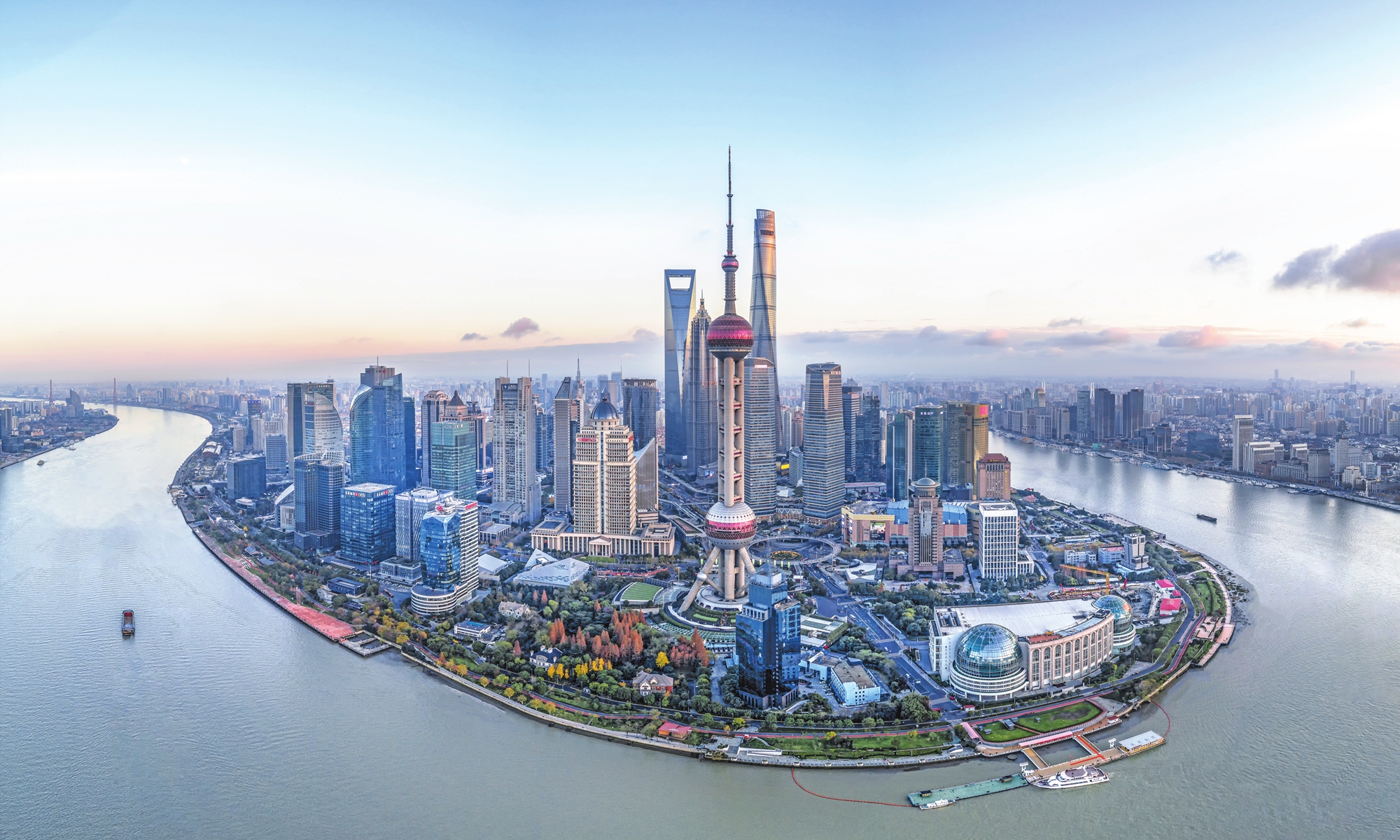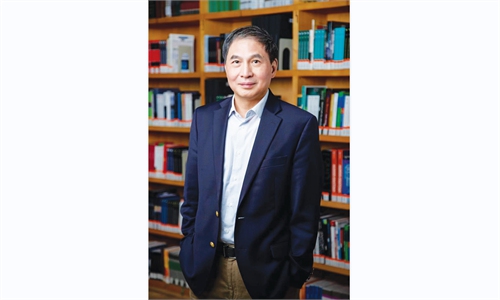CPC is able to maintain its role as a source of development and stability: Russian State Duma member

Photo: VCG
Editor's Note:
During the past decade, the world has increasingly witnessed a trend of "the East is rising while the West is declining" in the spheres of economy, security and discourse power. Western countries, particularly the US, plagued by internal woes, have sought the old path of passing the buck and instigating turmoil elsewhere to ease their own pressure. China, representative of the emerging countries, is proposing new solutions to global problems. By advocating win-win development, facilitating consultation and reconciliation and proposing a balanced and effective security mechanism, China is striving to build a community with a shared future for mankind.
In the 13th piece of this series, Mikhail Delyagin (Delyagin), deputy chairman of the Russian State Duma Committee on Economic Policy, talked to Global Times (GT) reporter Wang Wenwen on how he understands China's development in the past decade.
GT: Can you please tell me the story about you and China? What was the biggest difference between your first and last visits?
Delyagin: I first visited China in 1995. It was Shanghai. The old TV tower was new then - it had just been built. Cement dust from new buildings hung in the air, it gritted on the teeth; it had to be spit out. I visited one of the first supermarkets in Pudong, and all the employees ran to see a European. There were still slums in Shanghai; when at night one of their residents saw three Europeans in suits and ties walking down the street, it was clear from his face that he had sworn to himself never to drink again. Then I went to China every year, sometimes several times. I gave lectures to students, communicated with scientists, consulted a little.
I was not in China only in 2014 because of the Ukraine crisis, in 2020-21 because of the coronavirus and in 2022 because of my being wanted by Interpol. I saw how China developed, how difficult it was, how it learned, including from our mistakes. I saw how China wanted to become America and how it gave up on that desire, remaining committed to its own interests.
The difference between my first and last visits to China is that in 1995 I was worried about China and hoped that it could handle it. In 2022, I am not worried about China - I am afraid for Russia and I hope that we will manage.

Mikhail Delyagin Photo: Courtesy of Delyagin
GT: If you could sum up China's development in the past decade in one word, what word would you use? Which aspect of China's development are you most interested in? Why?
Delyagin: The essence of China's development in 2012-22 is the reintegration of the world and a technological breakthrough. You reunite the world. Inside the country, you have turned from efficiency at any cost to ensuring the harmony of society based on new technologies. I am most interested in managing the reorientation from foreign markets to domestic, as it is difficult and contrary to the instincts of business and influential groups in society.
GT: When it comes to China's development, it is inseparable from the leadership of the Communist Party of China (CPC). How do you view the CPC's role in China's development over the past decade?
Delyagin: The CPC has been able to maintain its role as a source of development and stability because it constantly learns and maintains high internal competition while maintaining solidarity in the face of external forces. It was able to creatively adapt the Marxism of the 19th century and its experience of the 20th century to new requirements and implement eternal values with new methods. This is a very important and useful lesson for us.
Despite all the difficulties and problems, the CPC serves the people, not businesses, and therefore serves its country, and not global capitals which are indifferent to the fate of peoples and cultures. This is its main difference from the parties of the West.
GT: It seems that Western societies still don't understand the concepts of socialism and communism. Are there any historical or social causes behind this?
Delyagin: Western businesses, having robbed the world, provided the inhabitants of Western countries with high standards of living. This led the peoples of the West to degradation, and the state and economy to a crisis. Communism is not needed by the well-fed bourgeois and the feckless who are satisfied with life, into which the citizens of the Western countries have been turned. The degradation of education does not allow them to understand that their prosperity is fragile and, moreover, has already ended. The intense information war waged by Western businesses against their peoples has deprived the residents of Western countries of the desire and ability to think. Therefore, they will reject communism until their way of life collapses - in a couple of more years - and then they will reject communism again with an unshakable belief in their ideology and propaganda.
GT: Against the backdrop of "the East is rising while the West is declining," Western elites, intellectuals, and politicians are supposed to help the public develop a correct understanding of China and Russia, but what we are seeing now is that they focus on the idea of the "China threat" and "Russian threat," and divide the world using "democracy" vs "authoritarian" rhetoric. How did this situation arise?
Delyagin: Western elites, intellectuals and politicians serve Western business. This business - financial speculators - has lost its progressiveness, has become a reactionary force against the backdrop of digital capital and is being forced out of history. Therefore, its intellectual and political servants have become a reactionary force and are objectively interested not in the study of reality, but in its denial. It has happened so many times in history. The policy of debilitation of society also plays its role in order to suppress its resistance and simplify its management. It also leads to the stupidity of the elites.
Relentless Western narrative that the West is noble while Russia and China are evil is dangerous. If people believe you are evil, they don't cooperate with you and they try to kill you. As a result, instead of progressing, they spend energy on defense, fall behind in the global competitive race, and become less kind.
GT: The relationship between China and Russia which has no limits has given the two countries an important source of support. What has driven the rapid development of bilateral relations over the past decade? What role has China-Russia cooperation played in breaking the unfair and US-dominated international order?
Delyagin: In the last 10 years, the crisis of the Western model of the economy, based on the arbitrariness of global monopolies and rampant financial speculative capital, has made normal development impossible within the framework of the Western project. This was expressed in the growth of the aggressiveness of the West and in its categorical demands for the renunciation of sovereignty and consideration of national interests. These demands pushed Russia and China out of the Western logic of development and strengthened their commonality. At the same time, the complementarity of the Russian and Chinese economies has increased, and the level of competition between them has significantly decreased. Strengthening Russia-China cooperation qualitatively has weakened US dominance and shown the world the possibility of a fair organization of international cooperation based on cooperation, not violence and exploitation. The possibility of a just peace is more important than local conflicts.
GT: In your opinion, how will the Russia-Ukraine conflict end?
Delyagin: We understand that the conflict with Ukraine is only the first episode of our systemic conflict with the West. The global economic crisis is destroying the West inevitably, and we are developing ourselves and waiting for its weakening so that it does not come to the stage of direct confrontation with us too united and too strong and at a time when we will still not be effective and stable enough for this stage. Our conflict with the West will not end, this is a competition of civilizations - but we will deprive the West of a significant part of its influence, a significant part of its ability to plunder the whole world, which means we will tear out its fangs and make it peaceful and not dangerous, while retaining its full usefulness.

